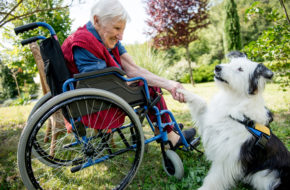While cures may not currently be possible for many forms of cognitive
illnesses, are there ways to treat people without the use of drugs?
Some believe it is possible to help manage some of the challenging behaviors and symptoms with a number of drug-free treatment options, including holistic therapies. It’s important to note, however, that many of these are based on trial and error, not scientific research.
In fact, according to the Alzheimer’s Association®,
“The rigorous scientific research required by the U.S. Food and Drug
Administration for the approval of a prescription drug is not required
by law for the marketing of dietary supplements or ‘medical foods.’”
This means that side effects, uses and efficiency may not be safely
monitored. For that reason, many people tend to opt for a different
approach: holistic therapies and lifestyle changes.
Options for older adults with dementia …
There are a number of steps you might test when trying to help a person with Alzheimer’s disease and other forms of dementia. These approaches can affect everyone differently, but through trial and error, you may be better able to help a loved one.
1. Aromatherapy. Some people may become agitated,
angry or even depressed as a result of dementia; it can thus be
difficult for them to relax or calm down. In these cases, aromatherapy
may be able to help. Try rubbing a lavender-scented lotion on their
hands or spraying a refreshing citrus room spray to lift spirits in the
morning.
2. Massage Therapy. If your loved one doesn’t
mind being touched, massage therapy might be something that is good for
them. It can not only help to relax the person, but also release
oxytocin to promote peace and calm.
3. Pet Therapy. There are few people who don’t instantly light up when they see an animal. Known to be successful in an array of situations, pet therapy can help break up your loved one’s routine and bring joy and happiness. Whether the person prefers the company of a dog or a cat, friendly purrs and wagging tails can make a difference.
For additional drug-free treatment suggestions, please click here!



